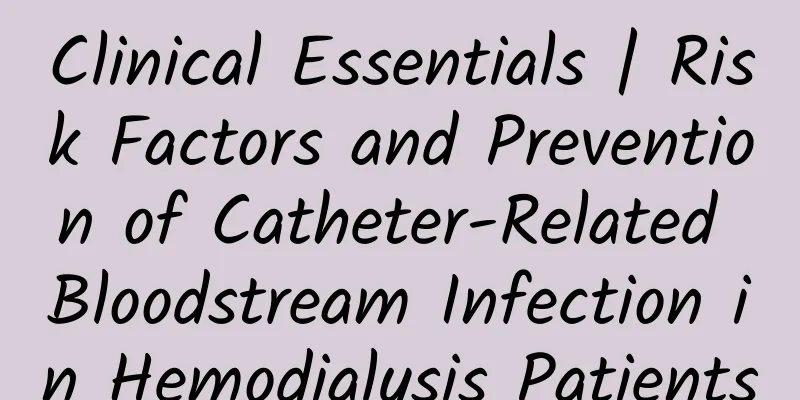Pay attention to these in your daily life to stay away from vascular diseases

|
Vascular disease refers to a variety of diseases that affect the normal function of the vascular system, including arterial disease, venous disease, and microcirculatory disease. Blood vessels are pathways for transporting oxygen and nutrients to various organs and tissues in the body, so vascular disease can have adverse effects on the health of the entire body. Common vascular diseases include coronary heart disease, hypertension, cerebrovascular disease, arteriosclerosis, varicose veins, etc. The occurrence of these diseases is related to many factors, including genetic factors, environmental factors, age, etc. In addition, unhealthy lifestyles and eating habits, such as high-salt diet, high-fat diet, lack of exercise, etc., may increase the risk of vascular diseases. The symptoms and manifestations of vascular diseases vary depending on the specific type and condition. Generally speaking, patients with coronary heart disease may experience chest pain and angina; patients with hypertension may experience headaches, dizziness and palpitations; patients with cerebrovascular disease may experience dizziness, aphasia, limb weakness, etc.; patients with arteriosclerosis may experience symptoms such as intermittent claudication in the legs; patients with varicose veins may experience venous dilatation, superficial varicose veins, etc. So what should we pay attention to in order to reduce the incidence of vascular diseases? 1. Quit smoking and limit alcohol consumption As we all know, smoking is very harmful to human health. It not only causes a variety of diseases, but also causes serious harm to the cardiovascular system. The harmful compounds in tobacco can damage vascular endothelial cells and destroy the normal structure and function of the blood vessel wall. This damage can cause the blood vessel wall to become uneven, increasing the risk of arteriosclerosis and thrombosis. The harmful compounds in tobacco can damage vascular endothelial cells and destroy the normal structure and function of the blood vessel wall. This damage can cause the blood vessel wall to become uneven, increasing the risk of arteriosclerosis and thrombosis. In addition, smoking increases the aggregation of platelets and blood viscosity in the blood, leading to an increased risk of thrombosis, and in severe cases can lead to myocardial infarction or stroke. Therefore, quitting smoking and limiting alcohol intake can significantly reduce the risk of vascular disease. 2. Stay away from obesity Many people say that "being able to eat is a blessing", but eating "too much" can lead to obesity, which can cause a series of health problems. First of all, obesity is one of the important risk factors for high blood pressure. Excessive adipose tissue increases the burden on the heart, making it more difficult for the heart to pump blood throughout the body, thereby increasing blood pressure. Secondly, obesity is often accompanied by high cholesterol and high blood sugar levels, which promote the formation of atherosclerosis, causing the arterial walls to become stiff and narrow, increasing the risk of cardiovascular disease. Therefore, weight control is essential for the prevention and management of vascular diseases. Adopting healthy eating habits and exercising regularly can effectively reduce weight. You can eat more foods that soften blood vessels, such as tomatoes, onions, black fungus, radishes, and eggplants, to reduce the risk of vascular diseases. 3. Relieve stress In today's highly competitive society, many people are under great pressure. Long-term stress can cause the body to release stress hormones, such as adrenaline and cortisol, which can cause blood vessels to constrict and increase blood pressure. Continuous high blood pressure increases the risk of cardiovascular disease. In addition, many people use various methods to relieve stress, such as drinking, smoking, overeating, etc. These behaviors will increase the risk of vascular disease. Therefore, it is very important to learn to relieve your own stress. In daily life, you can do moderate aerobic exercise, such as brisk walking, running, swimming, etc., to release stress and anxiety in your body. You can also relax your body and mind and reduce stress through massage, yoga, meditation, etc. 4. Avoid sitting for long periods of time Many "office workers" sit in front of electronic products all day, and immediately "collapse" on the sofa or bed after getting home from get off work at night. The World Health Organization points out that the harm of long-term sitting is second only to smoking. Sitting for a long time will slow down blood circulation, easily lead to thrombosis, aggravate vascular endothelial damage, and cause obstruction of blood return in the lower limb veins, increase lower limb venous pressure, and increase the risk of varicose veins. Therefore, in order to ensure the health of blood vessels, you must exercise properly and avoid sitting for a long time. Get up and move for 10 minutes every hour, such as walking, stretching, etc., to promote blood circulation. Do a moderate amount of aerobic exercise every day, such as running, cycling, swimming, etc., which can promote blood circulation and keep the heart and blood vessels healthy. Usually, you should lie down, stand up, bow your head, squat, etc. as slowly as possible to avoid postural hypotension, or sudden fainting or falling. In addition, many people now think that only the elderly are a high-risk group for vascular diseases. In fact, this is a big misunderstanding. Modern young people often stay up late, sit for long periods of time, have unhealthy living habits, and do not pay attention to their daily diet, all of which are very harmful to blood vessels. And with the arrival of spring, people's outdoor activities begin to increase. Some elderly people with coronary heart disease do not control the amount of exercise, which leads to increased heart load and can easily induce myocardial infarction or angina pectoris. The unpredictable climate in spring can easily cause disorders in the human body's nerve function, thereby inducing the onset of cardiovascular and cerebrovascular diseases. Therefore, in daily life, we must pay attention to our physical and mental health. If symptoms of cardiovascular disease appear, we must go to the hospital for treatment in time. (Fu Xiaocui, Lingshou County People's Hospital, Shijiazhuang City, Hebei Province) |
<<: What kind of care is essential for cardiovascular disease?
>>: The road to recovery from appendicitis: practical nursing can help you!
Recommend
Can ovarian cysts be cured with anti-inflammatory injections?
Ovarian cysts are a common uterine disease for ma...
How to turn off the positioning of BMW Connected? How to activate the BMW card key
After introducing the three specific functions of...
How to prevent excessive leucorrhea with odor
Increased leucorrhea with odor is definitely a pr...
Orange warning! It’s not too late for those who use sunscreen to know this →
Compiled by: Gong Zixin Not long ago The painful ...
Is it a big deal if I lose a fallopian tube?
In daily life, some women may have both fallopian...
What to do if menstrual bleeding cannot be stopped
It is normal to have menarche once a month. Howev...
Maternal and child health care four-dimensional color ultrasound appointment
We all know that women must undergo various prena...
What happened if the color ultrasound showed that the abortion was not complete 6 days after the medical abortion?
Faced with an unexpected pregnancy, many people w...
How can pregnant women remedy eating longan?
Longan is the well-known laurel. The production o...
What are the symptoms, causes and treatment of mucopurulent cervicitis?
Mucopurulent cervicitis is a relatively common gy...
Age of epiphyseal closure in girls
Many of our friends may have experienced some emb...
Benefits of drinking pork rib soup regularly
Pork ribs are the most common ingredient on the d...
Let "small current" help you solve big troubles - the secret of sacral nerve electrical stimulation
Let "small current" help you solve big ...
Will I have premature birth if I have a grade 2 placenta at 33 weeks?
For pregnant women, because the fetus in the abdo...
Risks of IVF
The emergence of test-tube babies has given many ...









